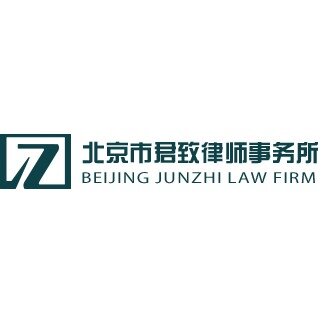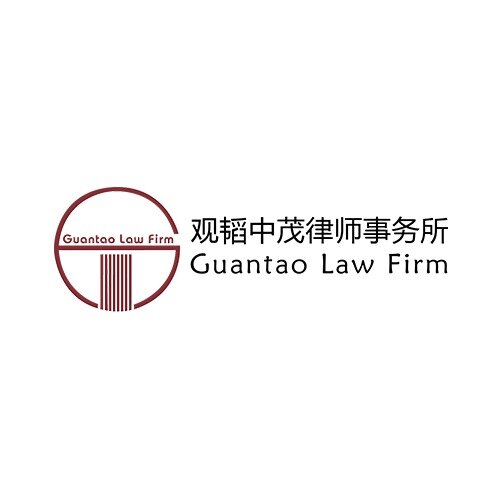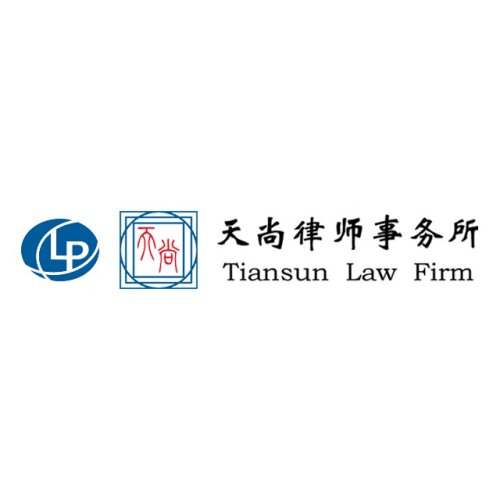Best Project Finance Lawyers in Beijing
Share your needs with us, get contacted by law firms.
Free. Takes 2 min.
List of the best lawyers in Beijing, China
About Project Finance Law in Beijing, China
Project finance in Beijing, China, refers to the legal and financial structuring of large-scale infrastructure and industrial projects, such as energy plants, highways, ports, and telecommunications networks. These deals are commonly structured as limited or non-recourse financing, where lenders rely on the project's cash flow for repayment, rather than the sponsors' balance sheets. Project finance law in Beijing incorporates both Chinese national laws and local regulations that govern foreign investment, land use, permits, environmental requirements, and financing arrangements. Beijing, as the capital city and commercial center, hosts numerous project finance transactions due to the presence of major state-owned enterprises, international investors, and regulatory bodies involved in approving and overseeing such projects.
Why You May Need a Lawyer
Engaging a lawyer experienced in project finance in Beijing is often critical for both domestic and foreign investors. Common situations that require legal assistance include:
- Structuring and negotiating project finance deals, including drafting and reviewing complex contracts.
- Ensuring compliance with all applicable Chinese laws, local regulations, and industry requirements.
- Navigating the establishment of special purpose vehicles and joint ventures.
- Managing risks related to permits, land rights, and government approvals.
- Assisting with due diligence before large investments or financings are finalized.
- Facilitating debt syndication, including negotiating with banks and financial institutions.
- Mitigating dispute risks, including providing legal support in negotiations, arbitration, or litigation.
- Advising on environmental, construction, and operational compliance during the project lifecycle.
- Guiding sponsors through cross-border aspects, such as foreign exchange controls and offshore financings.
Local Laws Overview
Beijing's legal environment for project finance is shaped by national legislation, local policies, and sector-specific rules. Some key aspects include:
- Foreign Investment Regulations - Projects involving foreign partners must comply with the Foreign Investment Law and the Negative List, which may restrict or require approval for certain sectors.
- Land Use Rights - Project company must secure land use rights through government allocations or leasing, often subject to zoning and urban planning approvals.
- Environmental Laws - Compliance with both national and Beijing municipal environmental regulations is necessary, including permits and environmental impact assessments.
- Financing Restrictions - Chinese financial rules govern onshore and offshore borrowing, foreign exchange, and repatriation of profits.
- Security Arrangements - Lenders frequently require mortgages or pledges over project assets, and these must be registered according to Chinese property and guarantee laws.
- Construction and Operational Permits - Required for most projects and subject to sector-specific requirements from relevant authorities.
- Dispute Resolution - Contracts often specify arbitration in Beijing or another agreed venue, and enforceability is governed by both Chinese law and international conventions (where applicable).
Frequently Asked Questions
What is project finance and how does it work in Beijing?
Project finance involves funding large-scale projects through a combination of debt and equity, with repayments primarily coming from the project's own cash flow. In Beijing, this typically involves creating a special purpose vehicle to isolate risks and manage legal and financial obligations.
Do I need government approval for my project in Beijing?
Most major infrastructure, energy, and public utility projects require government approval or permits, often from multiple authorities in Beijing. Foreign-invested projects may require additional clearances under the Foreign Investment Law.
What kind of security can lenders require for project finance deals?
Lenders often require security over project assets, land use rights, receivables, and sometimes the equity of the project company. The creation and registration of these securities must comply with Chinese property and contract laws.
Are there restrictions on foreign investors in project finance?
Yes, foreign involvement in certain sectors may be limited or regulated. The Foreign Investment Negative List details which sectors are restricted or prohibited for foreign investment in China, and additional approvals may be required in Beijing.
How are disputes typically resolved in project finance transactions?
Many agreements select arbitration as the preferred method, often administered in Beijing or another international venue. Chinese courts can enforce both domestic and some foreign arbitration awards, subject to local procedures.
What are the key regulatory risks in Beijing for project finance?
Key risks include changes in government policy, environmental and land use regulations, foreign exchange controls, and compliance with local permitting procedures. Legal counsel can help manage and mitigate these risks.
What permits are typically required to start a project in Beijing?
Common permits include land use certificates, construction permits, environmental impact assessment approvals, and sector-specific operating licenses. The requirements depend on the nature and location of the project.
How do I repatriate profits from a Beijing-based project?
Profit repatriation is governed by Chinese foreign exchange regulations, requiring compliance with capital account and taxation rules. Proper structuring and documentation are essential to facilitate remittance.
Can I use offshore financing for a Beijing-based project?
Offshore financing is permitted in certain circumstances, though it requires adherence to Chinese rules on cross-border guarantees, registration, and the use of foreign debt quotas. Legal advice is needed to ensure full compliance.
What are the typical financing structures used in Beijing?
Popular structures include non-recourse loans, mezzanine financing, syndicated facilities, and sometimes bonds or trust products, depending on project size, risk profile, and market conditions.
Additional Resources
For more information or assistance with project finance matters in Beijing, consider consulting the following organizations:
- National Development and Reform Commission (NDRC) - Regulates project approvals and investments.
- Beijing Municipal Bureau of Economy and Information Technology - Provides guidance on industrial and infrastructure projects.
- The State Administration for Market Regulation (SAMR) - Addresses corporate registration and compliance.
- China Banking and Insurance Regulatory Commission (CBIRC) - Oversees banking and insurance aspects relevant to project finance.
- China International Economic and Trade Arbitration Commission (CIETAC) - Handles arbitration of commercial disputes, including project finance.
- Local law firms with expertise in project finance, construction, and foreign investment.
Next Steps
If you are planning to engage in or invest in a project in Beijing that requires project finance, take the following steps:
- Consult with a qualified lawyer or law firm experienced in project finance and familiar with Beijing's regulations.
- Prepare initial project documents and conduct legal due diligence on partners, assets, and regulatory requirements.
- Engage with relevant authorities early to understand necessary approvals and timelines.
- Review and negotiate all contracts closely with legal counsel to ensure your interests are protected and compliance is maintained.
- Monitor legal and regulatory changes in the project finance sector for the duration of your project's lifecycle.
Lawzana helps you find the best lawyers and law firms in Beijing through a curated and pre-screened list of qualified legal professionals. Our platform offers rankings and detailed profiles of attorneys and law firms, allowing you to compare based on practice areas, including Project Finance, experience, and client feedback.
Each profile includes a description of the firm's areas of practice, client reviews, team members and partners, year of establishment, spoken languages, office locations, contact information, social media presence, and any published articles or resources. Most firms on our platform speak English and are experienced in both local and international legal matters.
Get a quote from top-rated law firms in Beijing, China — quickly, securely, and without unnecessary hassle.
Disclaimer:
The information provided on this page is for general informational purposes only and does not constitute legal advice. While we strive to ensure the accuracy and relevance of the content, legal information may change over time, and interpretations of the law can vary. You should always consult with a qualified legal professional for advice specific to your situation.
We disclaim all liability for actions taken or not taken based on the content of this page. If you believe any information is incorrect or outdated, please contact us, and we will review and update it where appropriate.















